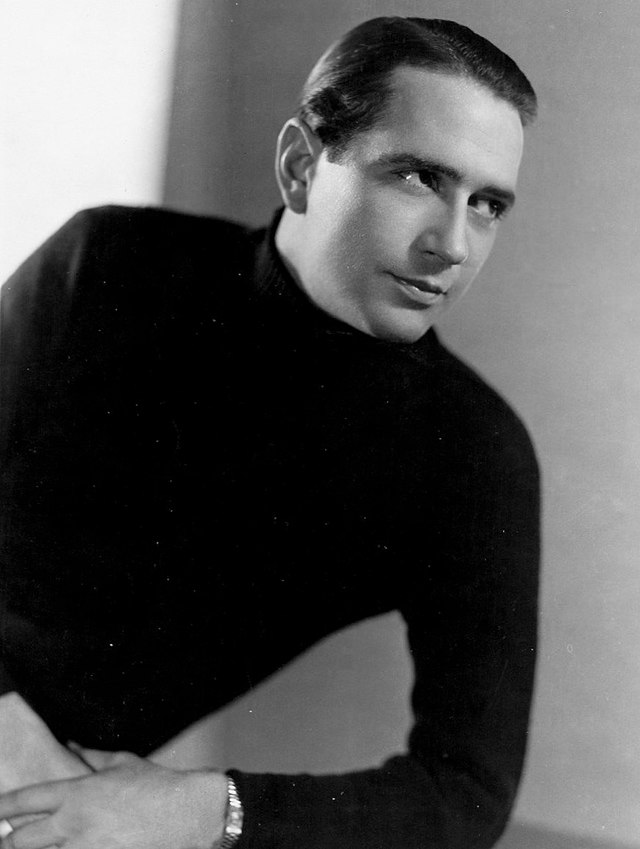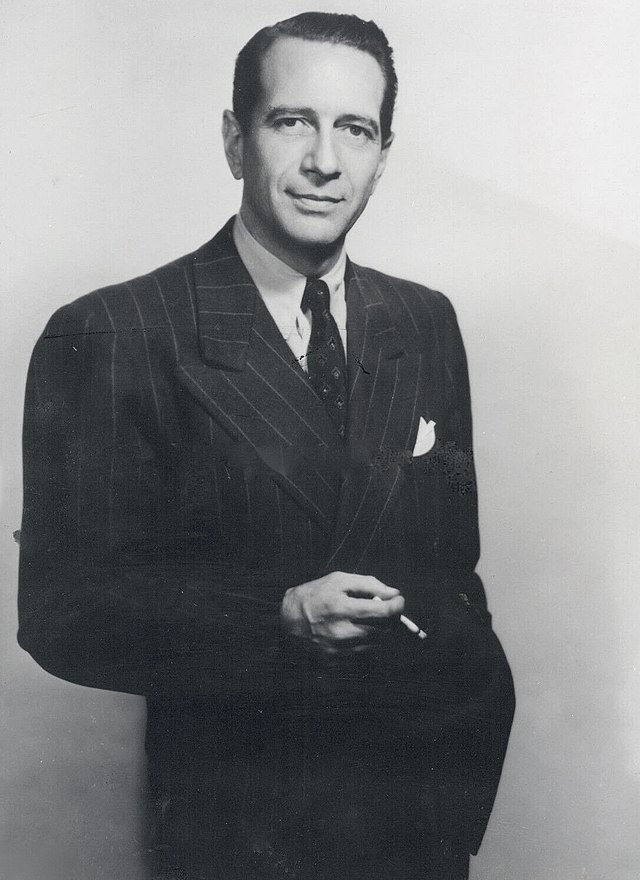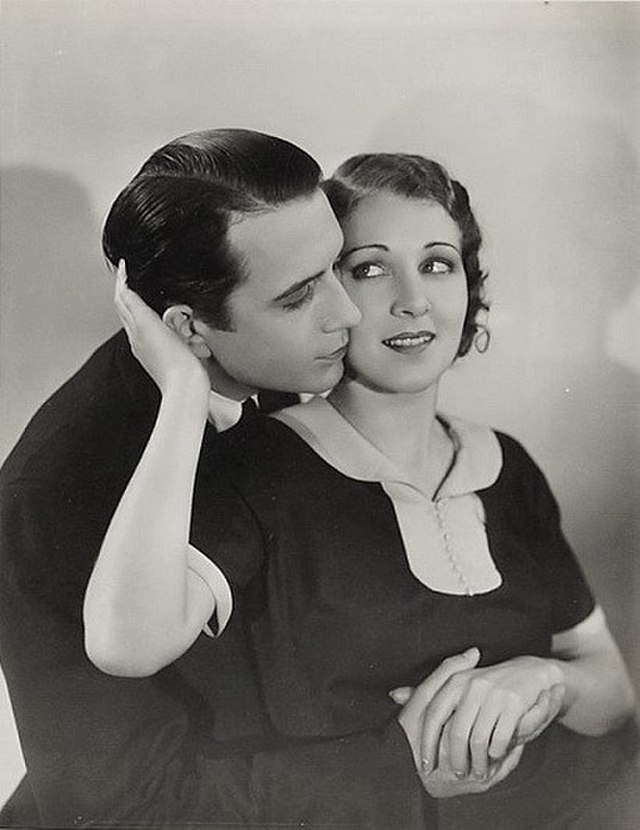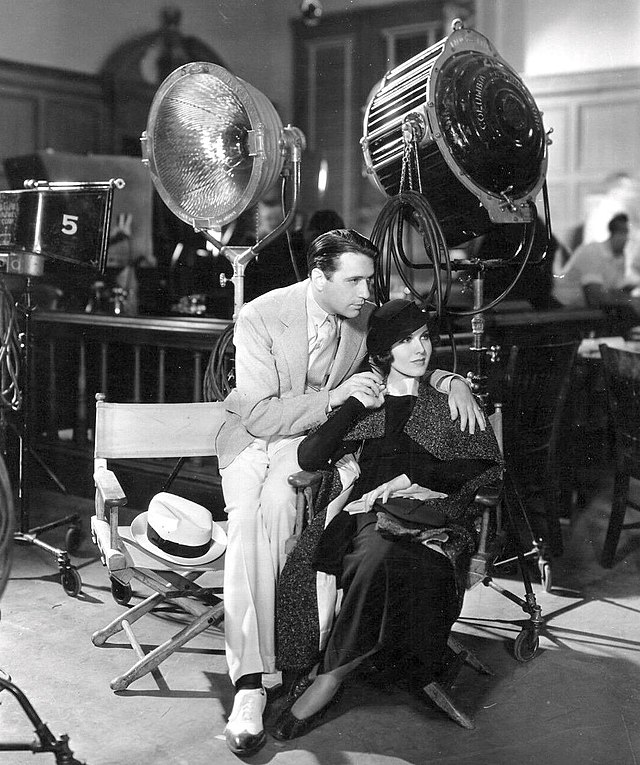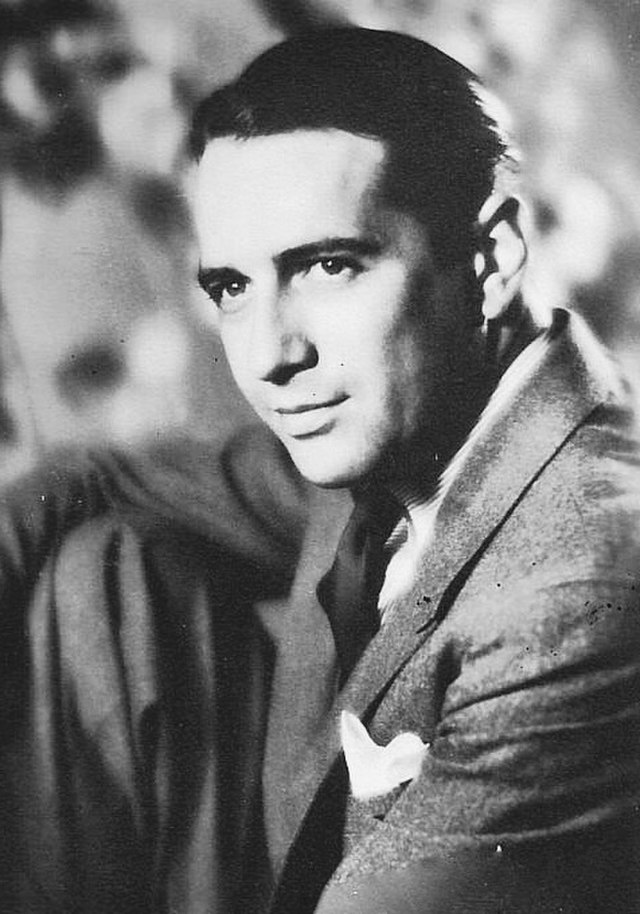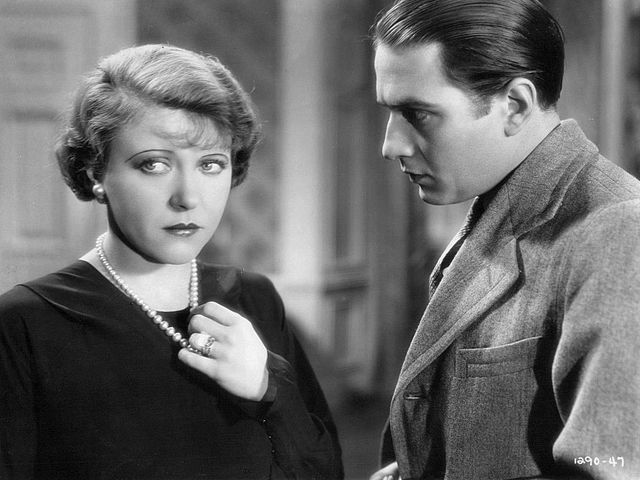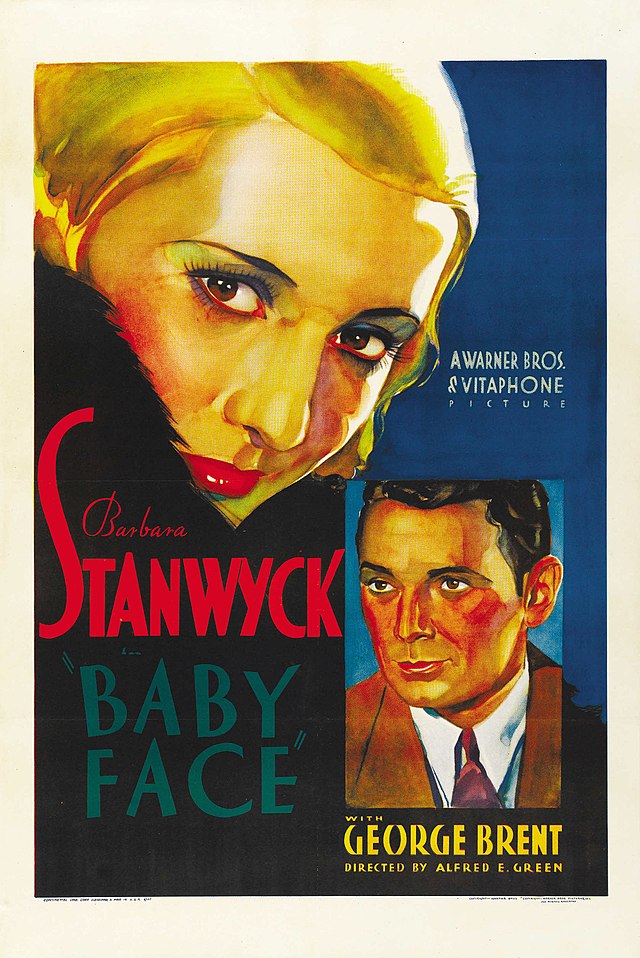Donald Cook
back| Full Name | Donald Cook |
| Stage Name | Donald Cook |
| Born | September 26, 1901 |
| Birthplace | Portland, Oregon, USA |
| Died | October 1, 1961 |
| Buried | River View Cemetery, Portland, Oregon, USA |
| Married to | Frances Beranger (m. 1930–1931) - Princess Gioia Tasca di Cuto (m. 1937–1961) |
| Children | None |
| Notable films | The Public nemy (1931) - Safe in Hell (1931) - Baby Face (1933) - Viva Villa! (1934) |
Donald Cook
The Gentleman of Stage and Screen
Donald Cook (1901–1961) was a distinguished American actor known for his refined presence on stage and screen. Born in Portland, Oregon, he transitioned from an early career in farming to acting, debuting on Broadway in Seed of the Brute (1926). He achieved fame in Hollywood during the pre-Code era with roles in The Public Enemy (1931) as the principled Mike Powers and Baby Face (1933).
On Broadway, he starred in the original The Moon Is Blue (1951) and a revival of Private Lives (1948).
Related
Donald Cook (1901 – 1961)
Biography and Movie Career
Donald Cook, an esteemed American actor of stage and screen, left an indelible mark on Hollywood’s Golden Age and Broadway’s illustrious history. Known for his polished demeanor and compelling performances, Cook's life story is one of ambition, talent, and dedication to his craft.
Early Years and Education
Donald Cook was born on September 26, 1901, in Portland, Oregon, into a family of modest means. His early years were shaped by the industrious nature of his hometown, where he initially envisioned a life rooted in farming and lumber work. After attending the University of Oregon, Cook's interest in performing arts emerged, a passion that eventually led him to abandon his initial career path and pursue acting.
Before achieving fame, Cook honed his craft with the Kansas Community Players, where he found a platform to develop his stage presence. This formative period fueled his determination to succeed in the demanding world of professional theater.
Path Towards Success
Cook's professional acting career began on Broadway in 1926 with his debut in the play Seed of the Brute. His commanding presence and strong voice quickly earned him recognition, allowing him to build a robust stage career that spanned over three decades. Notable Broadway performances included his roles in a 1948 revival of Private Lives and the original 1951 production of The Moon Is Blue.
Simultaneously, Cook ventured into Hollywood during the early 1930s, a period known as the pre-Code era. His on-screen performances were characterized by a mix of sophistication and intensity. In 1931, he gained significant attention for his role as Mike Powers in The Public Enemy, where he played the upright brother to James Cagney’s infamous gangster. Other memorable films included Safe in Hell (1931), Baby Face (1933), and Viva Villa! (1934). In Show Boat (1936), Cook delivered a memorable performance as Steve Baker, demonstrating his versatility as an actor.
Cook also holds the distinction of being the first actor to portray the fictional detective Ellery Queen in the 1935 film The Spanish Cape Mystery.
Personal Life and Marriages
Donald Cook's personal life reflected the complexities of balancing public recognition with private relationships. In 1930, he married actress Frances Beranger, but the marriage lasted only six months, dissolving in 1931.
In 1937, Cook married Princess Gioia Tasca di Cuto, an Italian aristocrat. Their union symbolized the blending of Hollywood glamour and European nobility, and although they were legally separated later in life, their marriage endured until Cook's death. Despite their separation, the couple remained on cordial terms. Cook did not have any children from either marriage, dedicating much of his life to his professional pursuits.
Passions Beyond Acting
Away from the limelight, Cook was known for his refined tastes and intellectual pursuits. He had a deep appreciation for literature and music, often immersing himself in creative projects that allowed him to express his multifaceted personality. His colleagues often described him as a gentleman with a sharp wit and a profound respect for the arts.
Final Years and Death
Donald Cook’s life was unexpectedly cut short on October 1, 1961, when he suffered a fatal heart attack in New Haven, Connecticut. He was 60 years old. His death marked the end of an era for his fans and colleagues, who mourned the loss of a consummate professional and a respected figure in the entertainment industry.
Cook was laid to rest in his hometown at River View Cemetery in Portland, Oregon. His contributions to film and theater were commemorated with a star on the Hollywood Walk of Fame at 1718 Vine Street, ensuring his legacy would endure for generations to come.
Short Video Bio on Donald Cook
Sophisticated Acting Style of Donald Cook
Donald Cook's acting style was characterized by a unique blend of sophistication, restraint, and emotional depth, making him a versatile performer capable of excelling in a wide range of roles. His performances were marked by a nuanced approach to character development, a keen sense of timing, and an ability to convey complex emotions through subtle gestures and expressions.
Sophistication and Poise
Cook's polished demeanor often lent itself to roles that required an air of refinement or moral uprightness. He brought an inherent elegance to his characters, whether playing a dashing romantic lead, a principled family man, or a conflicted professional. His portrayal of Mike Powers in The Public Enemy exemplifies this quality, where he stood as a moral counterpoint to James Cagney's volatile gangster. Cook’s natural grace made him particularly suited for roles requiring a dignified presence, allowing him to command attention without overpowering the narrative.
Nuanced Emotional Depth
One of Cook’s greatest strengths was his ability to deliver understated performances that resonated with authenticity. He was adept at portraying internal struggles, often conveying his characters' emotional complexities through subtle facial expressions and controlled vocal tones. This quality was evident in films like Baby Face, where his character, Stevens, navigates the challenges of a toxic relationship with an ambitious woman. Cook’s restrained approach allowed audiences to empathize with his characters, even when they faced moral dilemmas or personal failures.
Versatility Across Genres
Although often associated with dramatic roles, Cook demonstrated considerable versatility by successfully navigating genres such as romance, mystery, and even comedy. In The Spanish Cape Mystery, his portrayal of Ellery Queen showcased his ability to balance intellectual sharpness with a touch of humor, making the detective both relatable and compelling. Similarly, in Show Boat, he portrayed the earnest yet flawed Steve Baker, demonstrating his capacity to handle roles that required both romantic appeal and emotional vulnerability.
Collaborative Presence
Cook was also known for his ability to share the screen effectively with co-stars, enhancing ensemble performances without overshadowing his fellow actors. His collaborative spirit was particularly evident in films like The Public Enemy and Safe in Hell, where his performances complemented those of more flamboyant co-stars, adding depth to the overall narrative. This trait made him a valuable asset in both leading and supporting roles.
Stage Influence
Cook’s extensive experience on Broadway significantly influenced his acting style, giving him a strong command of voice modulation and physicality. His stage training imbued his screen performances with a deliberate pacing and an awareness of spatial dynamics, allowing him to create memorable character arcs even within limited screen time. The theatrical precision he brought to his roles enhanced his credibility, making him a standout performer during Hollywood’s transition from silent films to "talkies."
Reserved Charisma
Unlike many actors of his era who leaned heavily on overt theatrics, Cook’s charisma stemmed from his ability to draw audiences into his characters' worlds through understated yet powerful performances. This reserved style distinguished him from contemporaries who favored showier portrayals, giving his characters an air of authenticity that resonated with audiences seeking relatability.
Legacy in Acting
Donald Cook’s acting style remains a testament to the effectiveness of subtlety and sophistication in performance. His ability to balance emotional depth with restraint allowed him to craft characters that were both compelling and human. Whether playing romantic leads, upright citizens, or morally conflicted individuals, Cook’s performances were a masterclass in the art of controlled, thoughtful acting. His legacy endures as an example of how understated performances can leave a lasting impact in both cinema and theater.
Awards and Recognition
Donald Cook's contributions to stage and screen were recognized during his lifetime, though his understated style and roles in ensemble casts often kept him from achieving the same level of accolades as some of his contemporaries. Here is a complete overview of the awards and recognition he received, as well as honors that continue to preserve his legacy:
Hollywood Walk of Fame
• Star on the Hollywood Walk of Fame:
Donald Cook was honored with a star on the Hollywood Walk of Fame, located at 1718 Vine Street, commemorating his significant contributions to the motion picture industry. This recognition highlights his enduring legacy as an actor who brought sophistication and authenticity to his roles.
Stage and Theater Honors
• While Cook did not receive formal awards for his work on Broadway, his performances were widely praised by critics and audiences. His role in the original Broadway production of The Moon Is Blue (1951), which was later adapted into a controversial and groundbreaking film, remains a highlight of his stage career.
• He was also celebrated for his participation in the revival of Private Lives (1948), a production that solidified his reputation as a talented and versatile stage actor.
Industry Recognition
• Cook was highly regarded by his peers in both Hollywood and Broadway circles. His ability to transition seamlessly between stage and screen earned him respect within the industry. Though his career predated the institutionalization of awards like the Academy Awards or Tony Awards for many of his prime years, he was recognized informally as a consummate professional and a reliable performer.
Critical Acclaim
• His performance in The Public Enemy (1931) as Mike Powers was particularly lauded for its quiet strength and moral integrity, serving as a counterbalance to James Cagney's explosive portrayal of a gangster. This role remains one of his most celebrated cinematic contributions.
• Critics often highlighted his ability to deliver nuanced and emotionally rich performances, particularly in films like Baby Face (1933) and Show Boat (1936).
Posthumous Recognition
• While Donald Cook did not achieve the level of fame that warranted widespread award recognition during his lifetime, his legacy has been preserved through retrospectives and studies of early Hollywood and Broadway. His star on the Walk of Fame stands as a lasting tribute to his impact on the entertainment industry.
• His work in pre-Code Hollywood films, such as Baby Face, has been the subject of scholarly analysis for its contribution to the era's bold storytelling and complex character portrayals.
Movies with Donald Cook
1931
• Unfaithful: Terry Houston navigates the complexities of love and betrayal in this romantic drama.
• The Public Enemy: Cook portrays Mike Powers, the moral brother of a notorious gangster, highlighting the impact of crime on family dynamics.
• Party Husband: As Horace Purcell, Cook explores the challenges of modern marriage and societal expectations.
• Smart Money: In an uncredited role, he appears as Nick's second accomplice in this tale of gambling and ambition.
• Side Show: Joe Palmer's life intertwines with the vibrant world of carnival performers, revealing hidden truths.
• The Mad Genius: Cook plays Fedor Ivanoff, a dancer manipulated by a Svengali-like mentor in the performing arts.
• Safe in Hell: As Carl Bergen, he becomes entangled in a woman's flight from justice to a Caribbean haven.
1932
• Taxi!: In an uncredited role as Ferdinand, Cook contributes to this story of a cab driver's struggles in New York City.
• The Man Who Played God: Harold Van Adam assists a pianist who, after losing his hearing, finds new purpose in life.
• The Heart of New York: Milton's journey reflects the aspirations and challenges of immigrant life in the city.
• The Trial of Vivienne Ware: As John Sutherland, Cook defends a woman accused of murder in a sensational trial.
• The Conquerors: Warren Lennox's life spans decades, showcasing the rise and fall of fortunes in America.
• Penguin Pool Murder: Philip Seymour becomes a suspect in a murder investigation set in a city aquarium.
• Frisco Jenny: Dan Reynolds supports a woman who rises from tragedy to become a powerful figure in San Francisco.
1933
• Private Jones: Lt. John Gregg mentors a young soldier facing the realities of military life.
• The Circus Queen Murder: As The Great Sebastian, Cook is embroiled in a mystery within a traveling circus.
• The Kiss Before the Mirror: He portrays Maria's lover in this tale of passion and deception.
• Jennie Gerhardt: Lester Kane's relationship with a working-class woman challenges societal norms.
• The Woman I Stole: Corew becomes involved in a love triangle set against exotic locales.
• Baby Face: Stevens is one of the men manipulated by a woman's ambitious rise in the corporate world.
• Brief Moment: Franklin Deane's whirlwind romance with a singer leads to unexpected challenges.
• Fury of the Jungle: "Lucky" Allen faces peril and intrigue in the depths of the jungle.
• Fog: Wentworth Brown navigates a suspenseful plot shrouded in mystery and deception.
• The World Changes: Richard Nordholm's life reflects the transformation of America through industrialization.
1934
• Long Lost Father: Bill Strong reconnects with his estranged daughter, leading to heartfelt revelations.
• The Ninth Guest: Jim Daley attends a dinner party where guests are mysteriously killed one by one.
• Viva Villa!: As Don Felipe de Castillo, Cook is part of the tumultuous Mexican Revolution.
• Whirlpool: Bob Andrews becomes entangled in a web of crime and passion.
• The Most Precious Thing in Life: Bob Kelsey's relationship with his son explores themes of love and sacrifice.
• Jealousy: Mark Lambert's marriage is tested by suspicion and envy.
• Fugitive Lady: Jack Howard aids a woman on the run, leading to thrilling escapades.
1935
• Behind the Evidence: Ward Cameron uncovers hidden truths in a gripping legal drama.
• The Night Is Young: Toni Berngruber's romance faces obstacles in this musical love story.
• Gigolette: Gregg Emerson becomes involved with a woman striving for a better life.
• The Casino Murder Case: Lynn Llewellyn is a key figure in a high-society murder mystery.
• Motive for Revenge: Barry Webster seeks justice in a tale of betrayal and retribution.
• Murder in the Fleet: Lt. Cmdr. David Tucker investigates sabotage aboard a naval vessel.
• Here Comes the Band: Don Trevor leads a musical journey filled with melodies and challenges.
• Ladies Love Danger: Tom Lennox becomes entangled in a plot of intrigue and romance.
• The Spanish Cape Mystery: As Ellery Queen, Cook solves a baffling seaside murder.
• Confidential: FBI Agent Dave Elliott tackles espionage in a gripping thriller.
• The Calling of Dan Matthews: Frank Blair's life intertwines with a small-town minister's mission.
1936
• The Leavenworth Case: Dr. Truman Harwell is central to unraveling a complex murder case.
• Ring Around the Moon: Ross Graham's adventures lead to unexpected romantic entanglements.
• The Girl from Mandalay: Kenneth Grainger's journey to Burma brings danger and love.
• Show Boat: As Steve Baker, Cook portrays a performer facing personal and professional challenges on a riverboat.
• Ellis Island: Gary Curtis aids immigrants in their pursuit of the American dream.
• Can This Be Dixie?: Longstreet Butler's life is a comedic exploration of mistaken identities.

